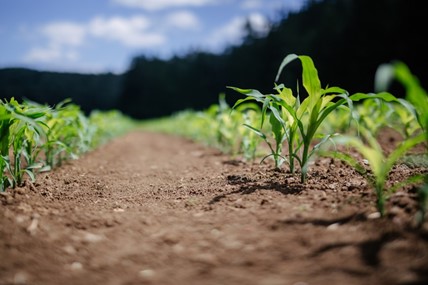Agronomy refers to the science and technology of plant and crop growth and management. Because of the focus on crop health and production, agronomists are often referred to as crop scientists. From advising farmers on crop production and soil management to conducting field trials to study crop problems, agronomists fulfill various roles.
Food security remains one of the world's biggest problems, and production needs to be ramped up to feed future generations and the ever-increasing population.
A career in agronomy utilises knowledge of agriculture, crop and plant science, soil science, ecology, and biology to improve food production and agricultural practices. In this article, we will discuss agronomy and the various career options within the field.
Different Agronomy Careers to Consider
There are many lucrative and fulfilling careers available in agronomy. According to National Careers Service, beginners in the field can earn up to £20,000 a year while experienced agronomists can earn up to £45,000 annually.
The various jobs include working in different environments, including farms, research facilities, offices, and agricultural laboratories. The following are some popular agronomy jobs interested candidates can consider.
Agronomy Consultants
No matter which agronomy specialty you choose, you can pursue a career as an agronomy consultant. This can include work in various industries for both government organisations and private companies. In addition to providing advice on different strategies for best utilising land and growing crops, it can relate to forestry, crop rotation, pollution, soil erosion, and more.
Some responsibilities include analysing data, preparing reports and giving presentations, advising on legislation and regulations, and conducting land valuations. Many consultancy roles are based around sustainability, but there are plenty of opportunities that deal with crops and farmer interaction.
Recreational Area Management
Many recreational areas such as sports fields and golf courses need to be maintained and cared for. Those who have studied agronomy are great candidates for this work since they can manage maintenance while keeping the soil and turf health in mind. While this job does require spending a lot of time outdoors, it also requires delegation and supervision.
Agronomy Engineering
Agricultural engineers working in agronomy can create and supervise plans for agricultural management and construction. They also manage projects and budgets associated with them.
Agricultural engineers are responsible for preparing reports, communicating with different stakeholders, and researching and designing different equipment and systems to improve agricultural productivity and sustainability. From farming and planning animal environments to forestry and conservation, this spans across a range of different fields.
Water and Soil Conservation Agronomy
Agronomy is sometimes considered synonymous with crops, but this could not be further from the truth. The field involves working on various issues, including water and soil conservation. With climate change being such a major problem, soil and water conservation has come to the forefront of the mitigation conversation. Agronomists in this field are engineers and scientists who can monitor the condition of the land, improve soil health, control soil erosion, and thus, prevent runoff and pollution and improve water quality.
Depending on the type of work being done, conservation agronomists can work both indoors and outdoors. They may work in laboratories or offices or may work in the field.
Agronomy Sales Manager
Sales agronomists and agronomy sales managers understand agronomic products and provide support and knowledge to customers. Their jobs may include travelling to different farms to sell products across the territories they’re assigned. In addition to giving farmers and growers advice about different products, they can be called on to make production decisions, implement marketing campaigns, and organise trial programs for farmers and other customers. They also deal with customers to maximise production using different agronomic plans and products.
Crop Production and Management
Many agronomists work directly with field crops and maximising their potential. This includes managing planting and harvesting, sorting through and implanting efficient practices to increase the quantity and quality of crops, and managing aspects of post-harvesting.
Management roles can also include managing both farms and greenhouses. Agronomists can supervise plant growth, plant breeding, disease control, nutrition, harvest, etc.
Sustainability and Development Agronomists
While various agronomy careers focus on individual farms, many also focus on overall sustainability and development. This includes opportunities in both developed and developing countries to encourage environmentally viable solutions to arising problems. It also involves working closely with farmers and ancillary services to develop and implement practices that can improve the quality and quantity of the output while remaining sustainable.
Plant Breeding
Agronomists can also work as plant breeders by using molecular breeding strategies and biotechnology to improve plant growth and performance. This may be included in research roles or may involve work alongside researchers.
Agronomy Research and Education
Agronomy requires research to improve genetic engineering, crop production, and agricultural practices to promote conservation efforts. Research agronomists can work in both laboratories and the field. Depending on the nature of their work, it may involve travelling to different farms and gathering samples. For research positions in agronomy, you will likely need a post-graduate or doctorate.
There are also many opportunities available in education. If you’re passionate about teaching agronomy to the next generation of agricultural workers, agricultural education may be the right path for you. This could be teaching at colleges, universities, or extensions and can cover various topics, including crop and soil science, soil physics and conservation, environmental microbiology, and more.
Find Agronomy Jobs with Agricultural Recruitment Specialists
Many people are interested in agronomy careers because of the difference they can make in global food supply and protecting the environment. Food security is one of the toughest issues facing us, and agronomists can help solve this problem. Whether you’re interested in being an agronomy sales manager, an agronomy engineer, or want to pursue other jobs for agronomists, Agricultural Recruitment Specialists can help. We specialise in helping farming talent find employment at highly regarded agricultural organisations.
Look through our job portal or upload your CV and register with us here and our recruitment experts can help you achieve your agricultural career goals.













